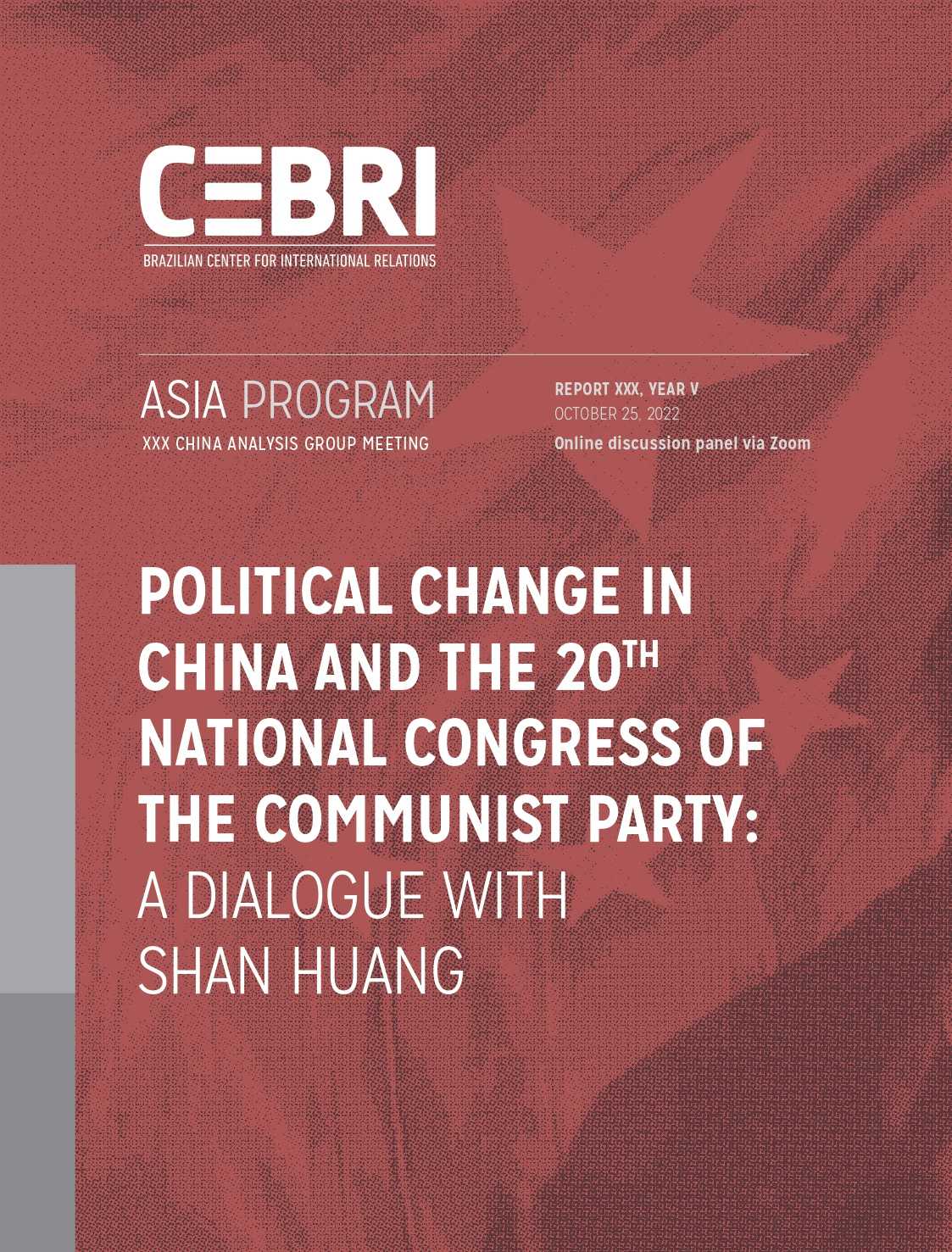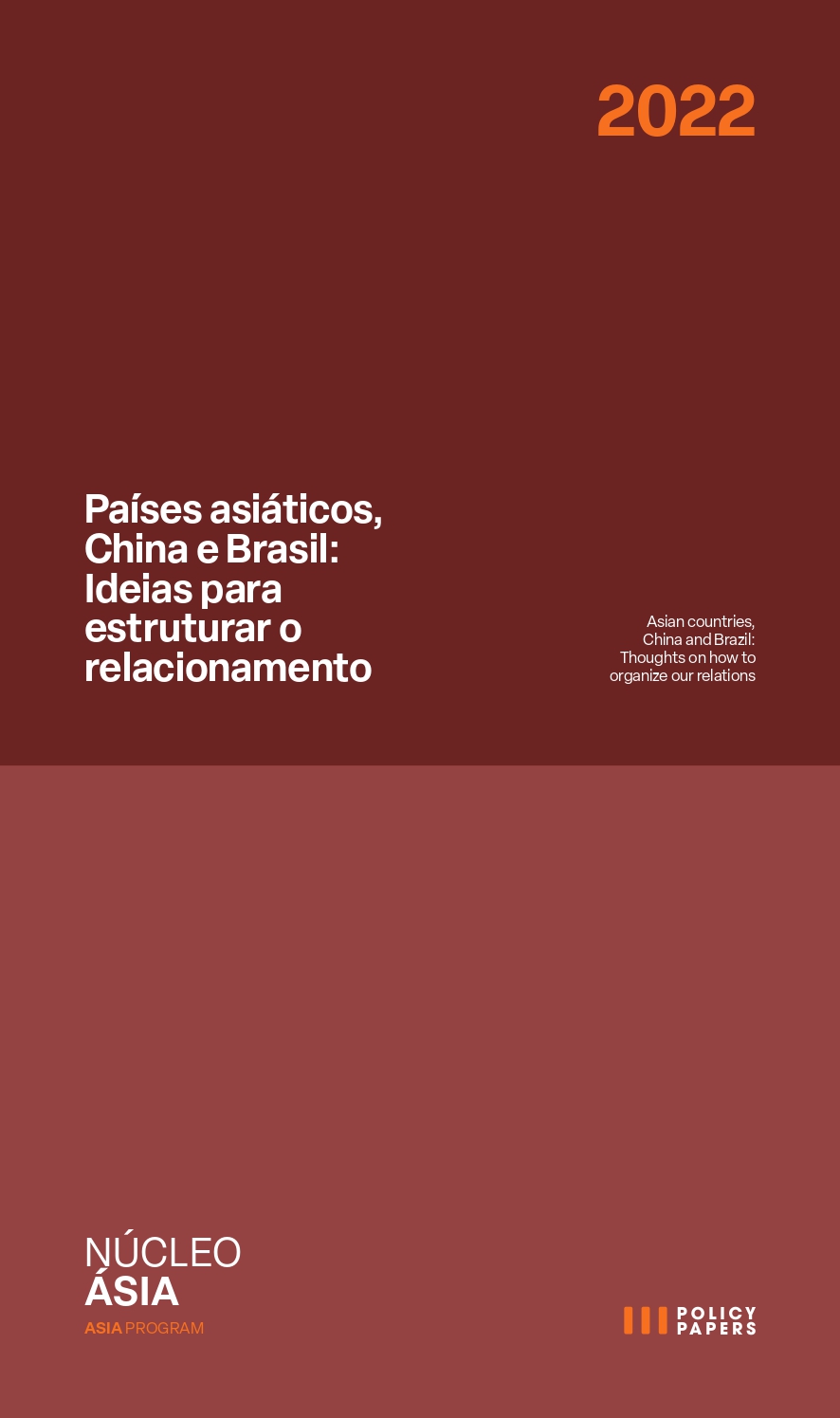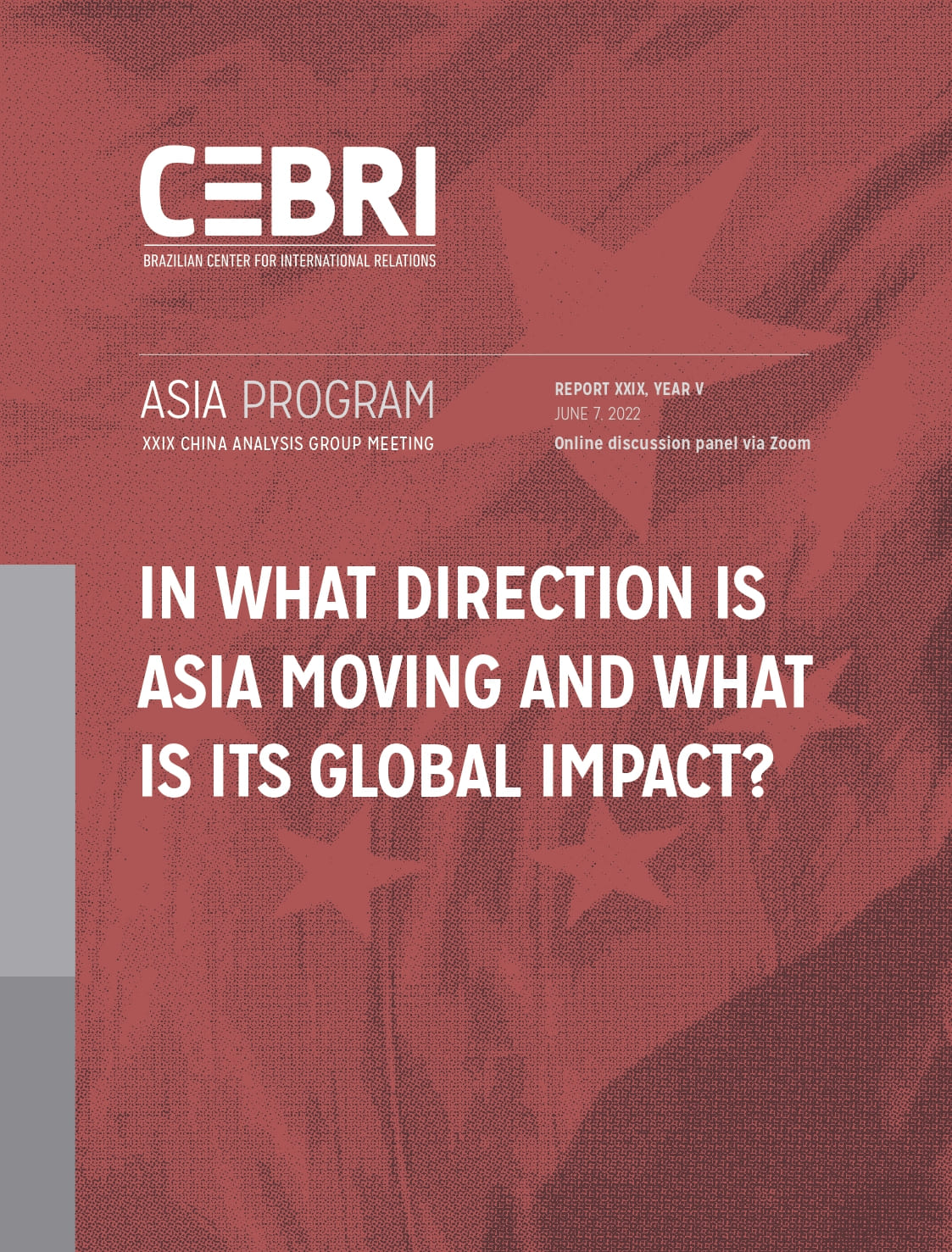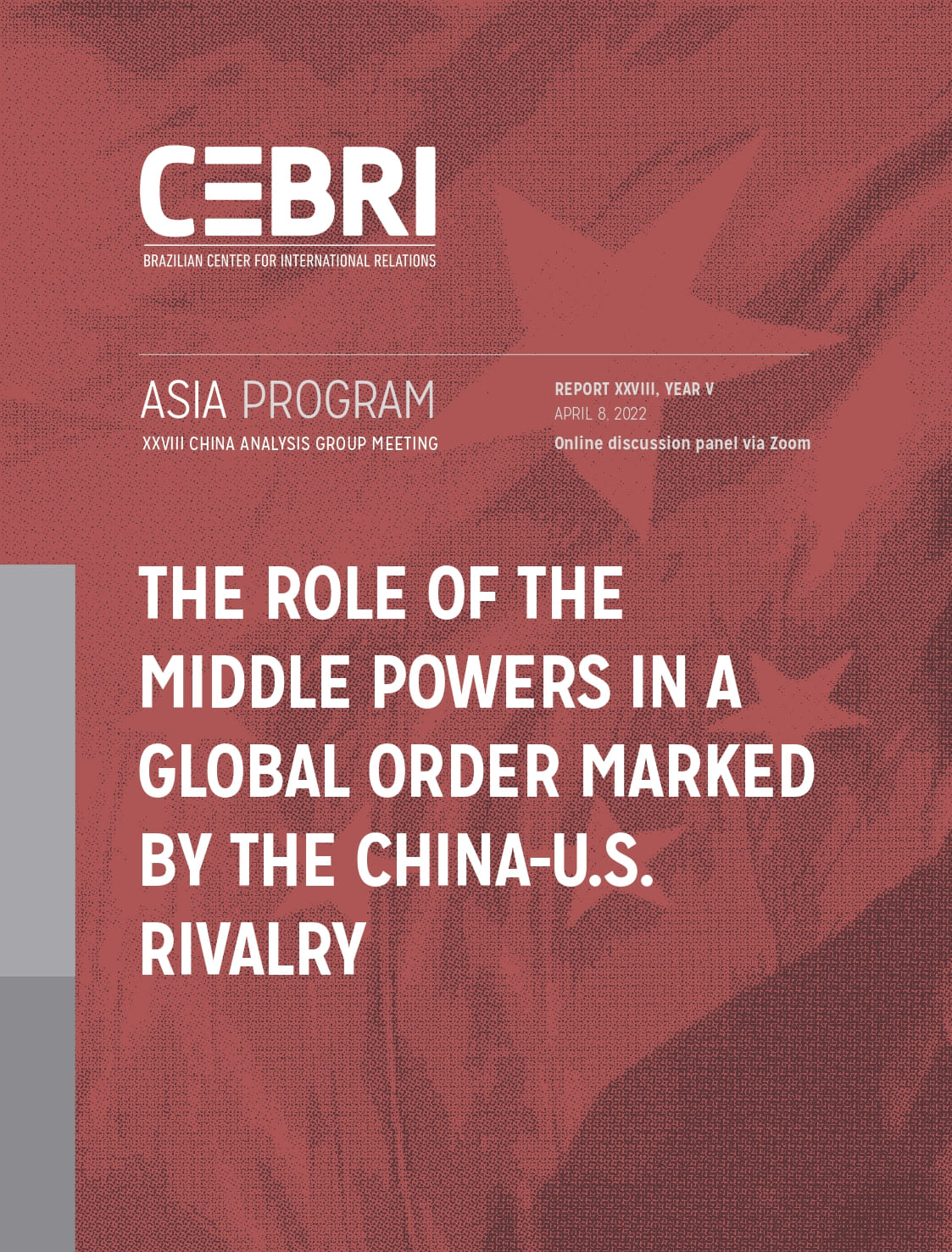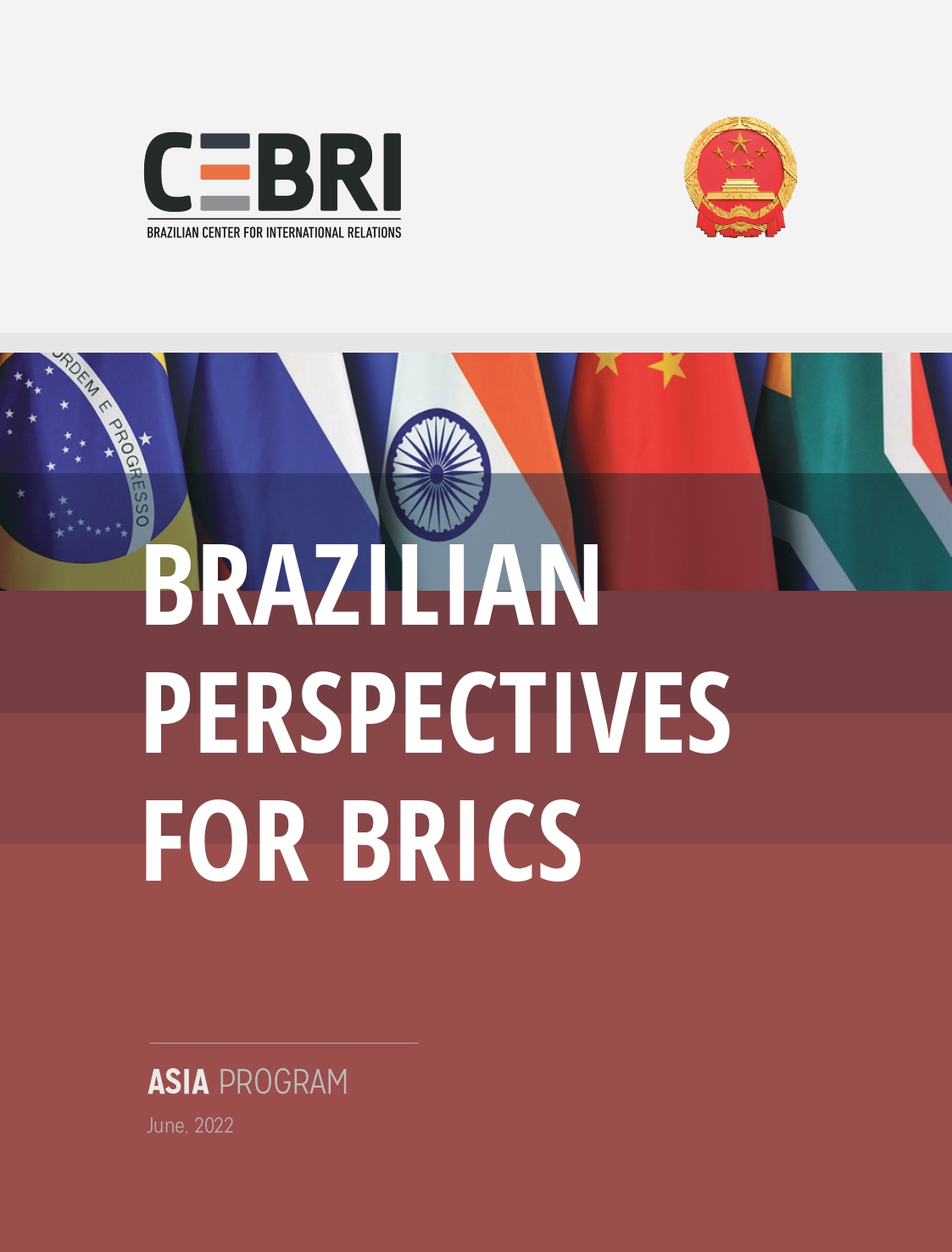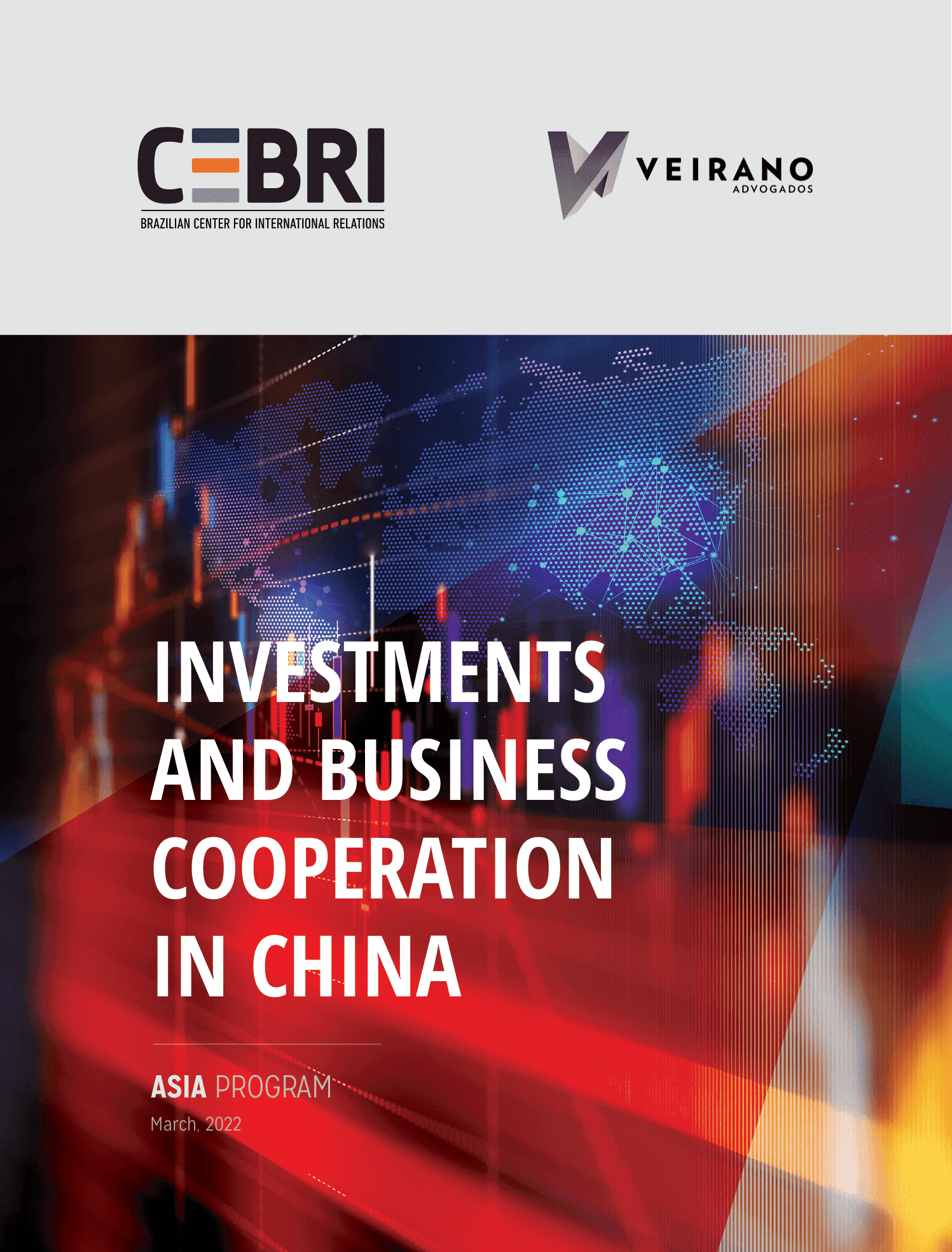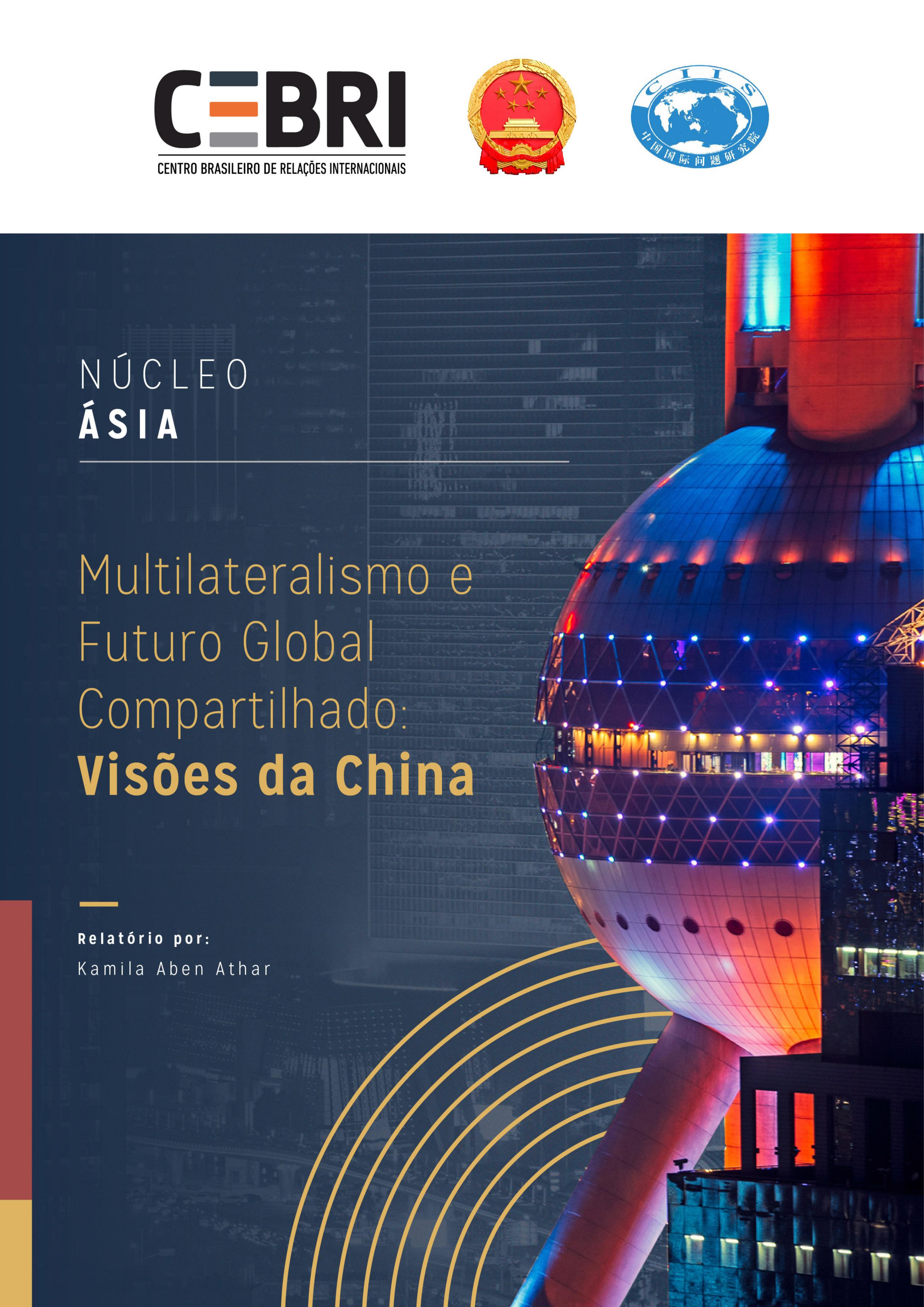In its second edition, the China Analysis Group organized a reflection on the importance of articulating a Brazilian strategy for China more clearly. Such a strategy would be based on the key elements that currently guide bilateral relations, but also on the identification and evaluation of the main risks and opportunities inherent in the deepening of this relationship, especially in the economic area.
The desire to improve the coordinated implementation of a strategy that articulates the country's long-term interests and identifies instruments to promote these interests was discussed. Such a task would benefit from structured reflection by the government, the private sector, academia and civil society.
The debates witnessed convergence regarding the importance of establishing a more comprehensive strategy, in which conception, coordination and implementation are integral elements. Experts also emphasized that a strategy for China cannot be thought of in isolation from a strategy for Brazil. Such a strategy must take into account, above all, Brazil's challenges in relation to increasing economic productivity and the low technological content of exports. It must also include a vision of the future on how Brazil will position itself in a world where the dynamic center leans more and more towards Asia and in which China assumes growing leadership, both because of the great impact exerted indirectly by the Chinese economy on the global economy, which is already greater than that exerted by the American economy in many sectors, but also, directly, as an investor.
Only available in Portuguese.
In its second edition, the China Analysis Group organized a reflection on the importance of articulating a Brazilian strategy for China more clearly. Such a strategy would be based on the key elements that currently guide bilateral relations, but also on the identification and evaluation of the main risks and opportunities inherent in the deepening of this relationship, especially in the economic area.
The desire to improve the coordinated implementation of a strategy that articulates the country's long-term interests and identifies instruments to promote these interests was discussed. Such a task would benefit from structured reflection by the government, the private sector, academia and civil society.
The debates witnessed convergence regarding the importance of establishing a more comprehensive strategy, in which conception, coordination and implementation are integral elements. Experts also emphasized that a strategy for China cannot be thought of in isolation from a strategy for Brazil. Such a strategy must take into account, above all, Brazil's challenges in relation to increasing economic productivity and the low technological content of exports. It must also include a vision of the future on how Brazil will position itself in a world where the dynamic center leans more and more towards Asia and in which China assumes growing leadership, both because of the great impact exerted indirectly by the Chinese economy on the global economy, which is already greater than that exerted by the American economy in many sectors, but also, directly, as an investor.
Only available in Portuguese.
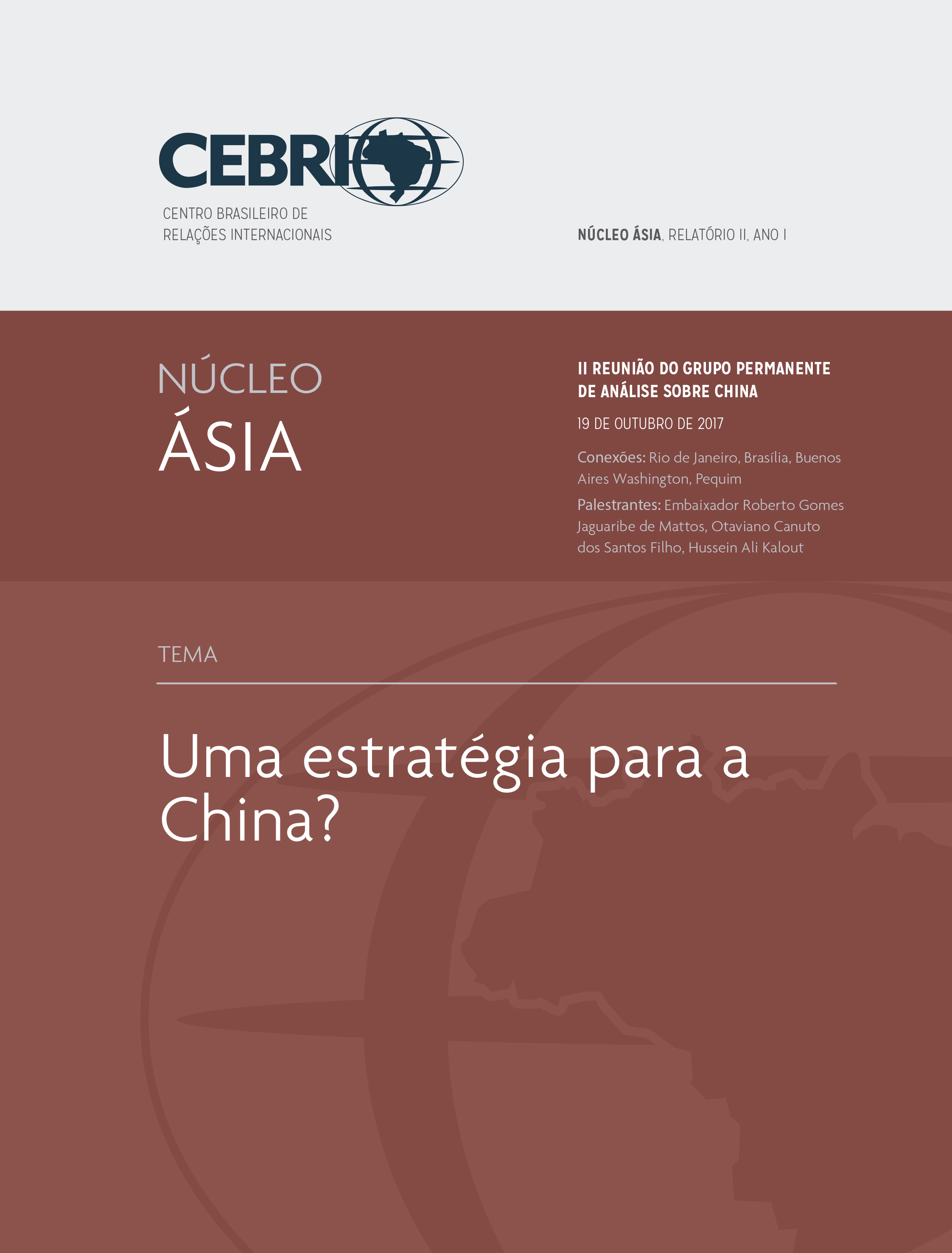



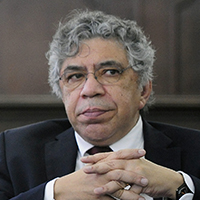
6932f633dad5f.png)
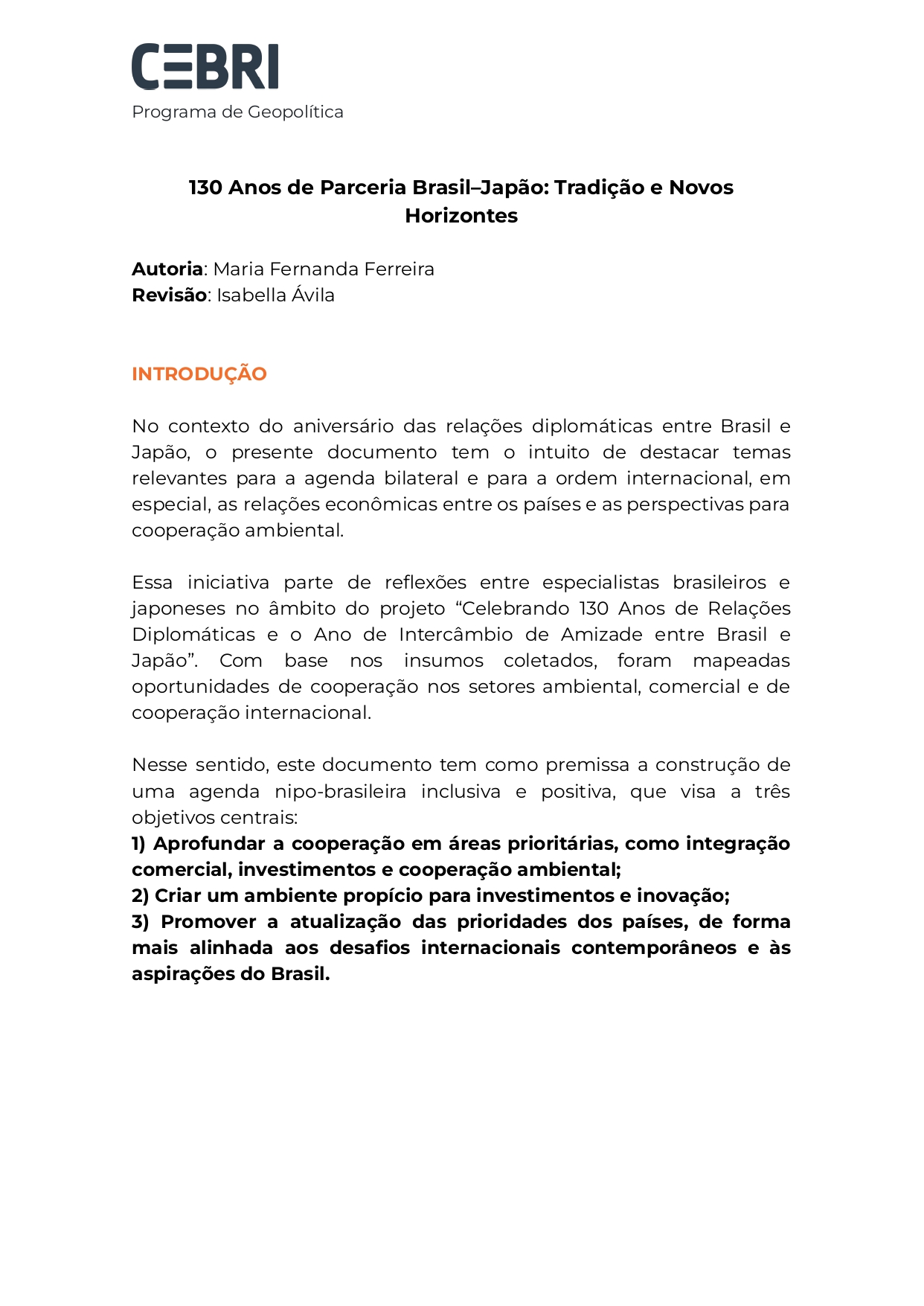
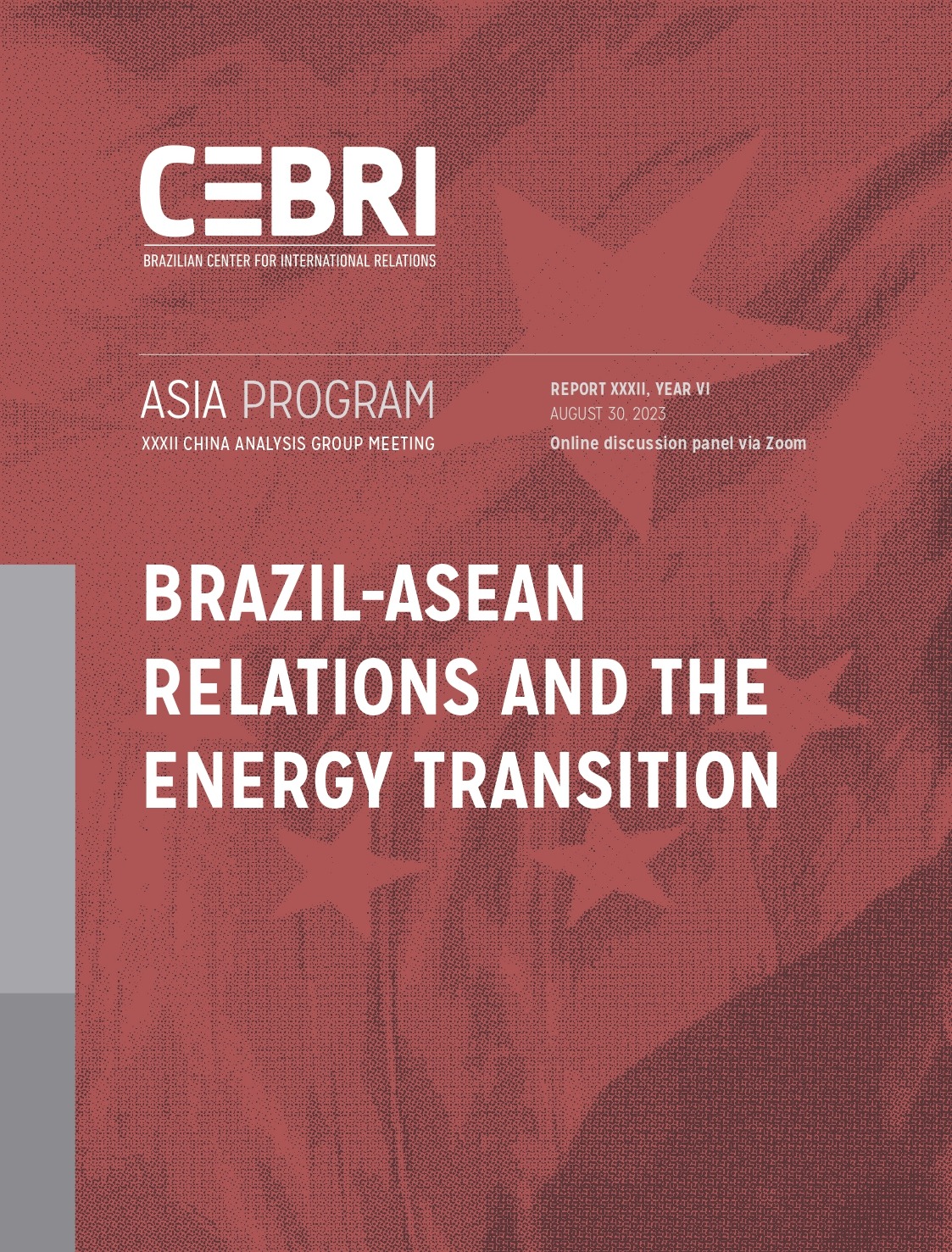
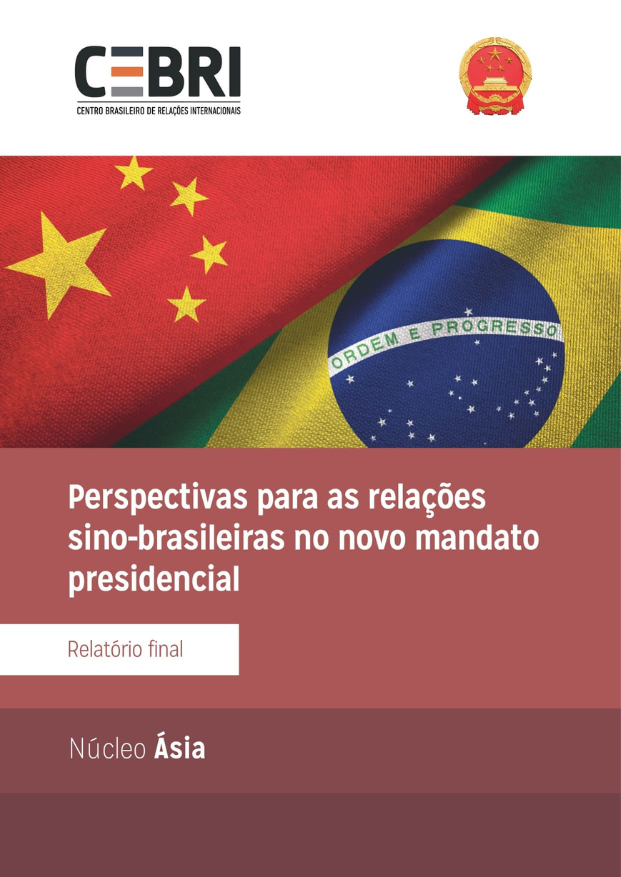
63dd462196071.jpg)
